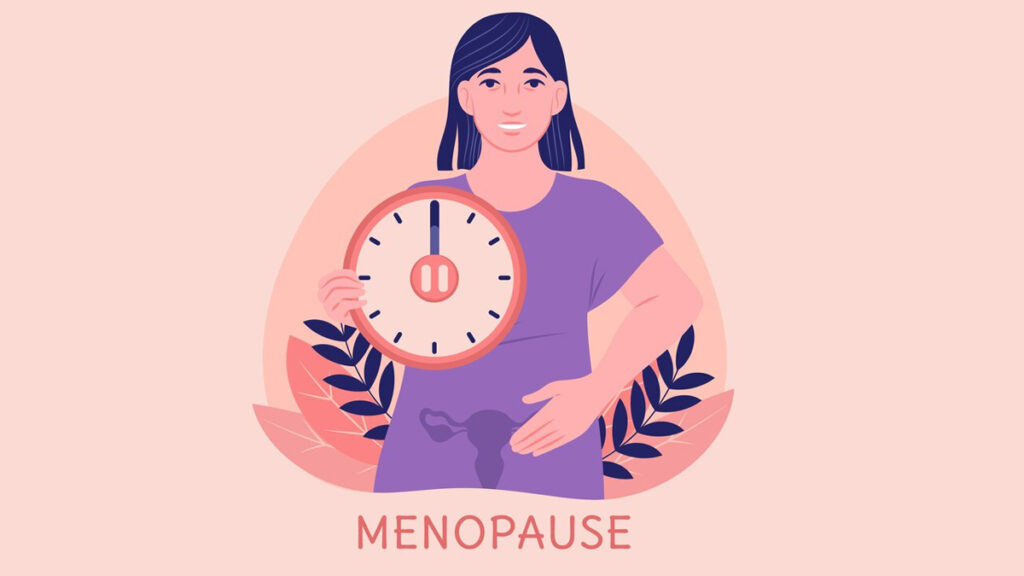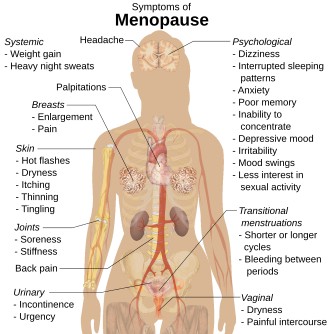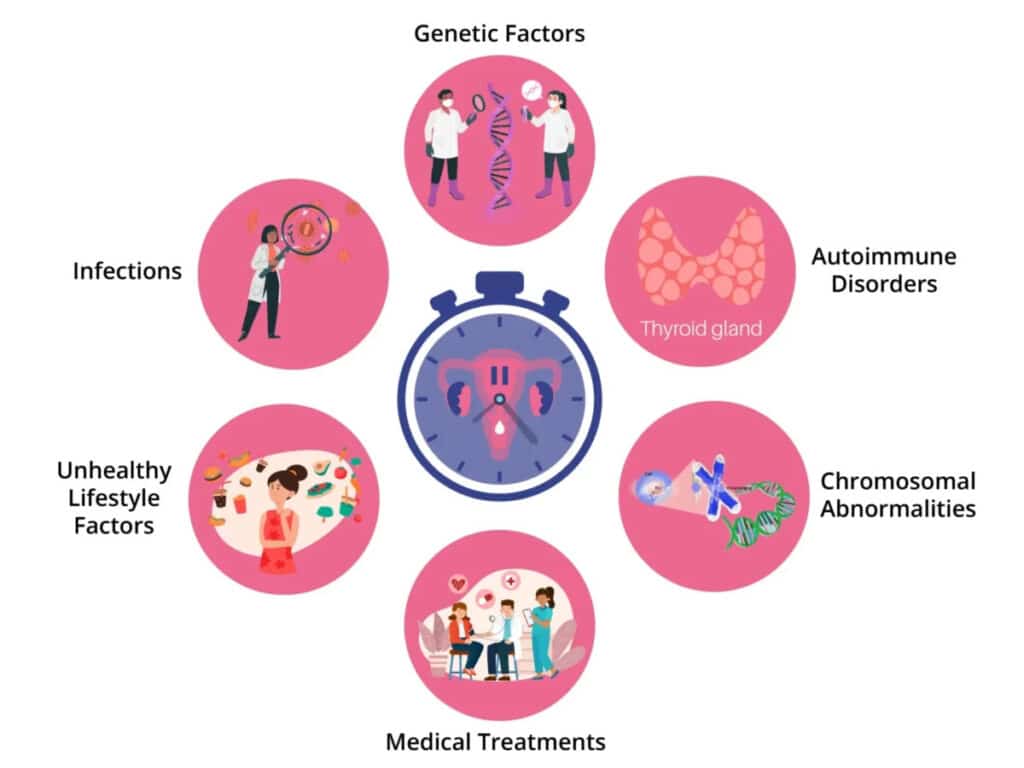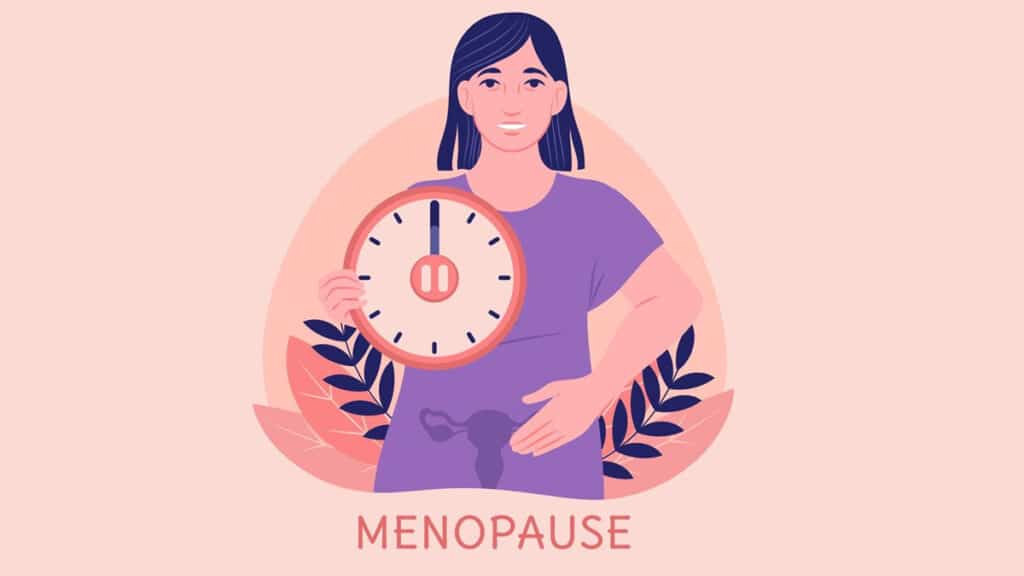Menopause marks the beginning of a transformative journey, inviting you to embrace change with open arms. As you navigate through this new chapter, you’ll encounter various symptoms that might feel overwhelming at times. However, understanding menopause can empower you to cultivate resilience and positivity. Remember, countless women have walked this path before you, and by building a strong support system and making thoughtful lifestyle adjustments, you can turn challenges into opportunities for growth. Together, let’s explore how to thrive during this pivotal phase and celebrate the remarkable journey ahead.
Understanding Menopause: A New Chapter
Menopause marks a significant transition in a woman’s life, representing a new chapter filled with both challenges and opportunities. Understanding menopause is crucial as it empowers you to navigate this phase with greater ease.
Firstly, let’s familiarize ourselves with what menopause entails:
- Definition: Menopause is the natural biological process marking the end of menstruation and fertility. Typically occurring between the ages of 45 and 55, it signals a decrease in hormone production.
- Phases:
- Perimenopause: The transitional phase leading to menopause, where hormonal fluctuations can cause various symptoms.
- Menopause: Defined as having gone 12 consecutive months without a menstrual period.
- Postmenopause: The years following menopause, where symptoms may subside but health considerations remain.
While menopause can bring about symptoms such as hot flashes, mood swings, and sleep disturbances, it’s essential to view this period as a chance for reinvention and growth. Embracing the changes can lead to newfound freedom and self-discovery.
In summary, understanding menopause is about recognizing it as a natural progression in life. Armed with knowledge, you can approach this new chapter confidently, ensuring you prioritize your well-being and celebrate every element of your journey. Remember, this is not just an end, but rather a fantastic beginning!

Common Symptoms and How to Manage Them
Experiencing menopause can bring about a range of physical and emotional symptoms, which can feel overwhelming. However, understanding these symptoms is the first step toward managing them effectively. Here are some common symptoms associated with menopause and supportive strategies to alleviate them:
Common Symptoms
- Hot Flashes: Sudden feelings of warmth, often accompanied by sweating.
- Night Sweats: Episodes of perspiration during sleep that can disrupt rest.
- Mood Changes: Increases in anxiety, irritability, or sadness.
- Sleep Disturbances: Difficulty falling or staying asleep.
- Weight Fluctuations: Changes in metabolism may lead to weight gain.
- Vaginal Dryness: Decreased moisture can lead to discomfort during intimacy.
Management Strategies
- Hydration: Drink plenty of water to help manage hot flashes and maintain overall health.
- Diet: Incorporate a balanced diet rich in fruits, vegetables, and whole grains, while reducing caffeine and alcohol.
- Exercise: Engage in regular physical activity. Activities like walking, yoga, or swimming can help improve mood and sleep quality.
- Mindfulness Practices: Consider meditation or deep-breathing exercises to alleviate stress and mood swings.
- Consult Professionals: Speak to your healthcare provider about herbal supplements or medications that may help ease symptoms.
Remember, the experience of menopause is unique to each individual, and seeking support can make all the difference. Embrace this transition, knowing that with the right strategies, you can navigate through menopause with confidence and resilience.
The Emotional Impact of Menopause
Experiencing menopause can bring about a whirlwind of emotions, and it’s completely normal to feel overwhelmed at times. As your body undergoes significant hormonal changes, many women report shifts in their emotional well-being. Understanding these feelings can empower you to navigate this transition with grace.
Common Emotional Responses:
- Mood Swings: Fluctuations in hormones can lead to unexpected bursts of joy or sadness.
- Anxiety and Irritability: Some women feel more anxious or irritable during menopause, which may affect daily life.
- Feelings of Loss: Many women grapple with the end of fertility and the changes that come with aging.
How to Manage Emotional Changes:
- Stay Connected: Reach out to friends, family, or support groups to share your experiences and feelings.
- Practice Self-Care: Engage in activities that nurture your mind and body, such as meditation, yoga, or journaling.
- Seek Professional Help: Don’t hesitate to speak to a therapist or counselor if feelings become overwhelming.
Ultimately, remember that menopause is a part of life’s journey. While the emotional impacts can feel challenging, you are not alone. With the right mindset and support, you can embrace this new chapter, emerging stronger and more resilient than ever.
Embracing Change: A Positive Outlook
Entering the stage of menopause offers a unique opportunity for growth and transformation. While this may feel daunting, embracing change with a positive outlook can lead to empowering experiences. Here are some encouraging perspectives to help you navigate this transition:
- Shift Your Perspective: View menopause not as an end, but a new beginning. It’s an opportunity to rediscover yourself without the distractions of previous roles and responsibilities.
- Focus on Personal Growth: This period can be a time to explore new interests, hobbies, or skills you may have put on hold. Embrace the chance to invest in yourself!
- Connect with Others: Sharing your experiences with friends or support groups can create a sense of community. Knowing others face similar challenges fosters resilience and reassurance.
- Practice Self-Compassion: Understand that emotional ups and downs are normal during menopause. Be kind to yourself, allowing space to feel and express your emotions without judgment.
- Develop a Positive Routine: Incorporate activities that uplift you. This could be through gentle yoga, journaling, or engaging in social activities that foster joy.
Embracing the changes of menopause with a proactive attitude can help you uncover new paths and possibilities. Remember, this journey is about growth, and with each step, you move closer to a vibrant self!

Nutrition and Lifestyle Adjustments
Navigating menopause can feel overwhelming, but embracing changes in your nutrition and lifestyle can help you thrive during this transitional period. With thoughtful adjustments, you can alleviate symptoms and support your overall well-being.
Key Nutritional Adjustments
- Increase Calcium and Vitamin D: These nutrients support bone health, which becomes crucial during menopause. Aim for foods like yogurt, leafy greens, and fortified cereals.
- Focus on Phytoestrogens: Incorporate foods rich in phytoestrogens, such as soy products, flaxseeds, and legumes. They can help balance hormone levels.
- Stay Hydrated: Drink plenty of water to manage hot flashes and keep your skin hydrated.
Lifestyle Enhancements
- Regular Sleep: Prioritize sleep hygiene to combat insomnia often experienced during menopause. Develop a relaxing evening routine and maintain a consistent sleep schedule.
- Manage Stress: Engage in stress-reducing activities such as yoga, meditation, or deep breathing exercises. These practices can help in managing emotional fluctuations.
- Limit Caffeine and Alcohol: Reducing these stimulants can help minimize symptoms like hot flashes and mood swings.
Remember, you don’t have to make drastic changes overnight. Start with small adjustments, and gradually build a routine that makes you feel empowered. Every step you take towards a balanced lifestyle can significantly enhance your quality of life during menopause and beyond. Stay positive and believe in your ability to navigate this journey!
Exercise and Its Benefits During Menopause
Navigating menopause can be challenging, but incorporating regular exercise into your routine offers numerous benefits that can simplify this transition. Embracing physical activity not only supports your physical well-being but also enhances your emotional health. Here are some reasons to get moving during menopause:
- Improves Mood: Exercise releases endorphins, helping to fight mood swings and feelings of anxiety, which are common during menopause.
- Boosts Metabolism: As hormonal changes alter your metabolism, regular physical activity can help maintain a healthy weight and increase your energy levels.
- Strengthens Bones: Weight-bearing exercises like walking or resistance training help combat bone loss, reducing the risk of osteoporosis.
- Improves Sleep Quality: Many women experience sleep disturbances during menopause; regular exercise can promote better sleep patterns.
- Enhances Overall Health: Staying active reduces the risk of chronic diseases such as diabetes and heart disease, which can be more prominent post-menopause.
Recommended Exercises
- Aerobic Activities: Walking, cycling, or swimming for at least 150 minutes a week.
- Strength Training: Engaging in strength-training exercises twice a week, focusing on major muscle groups.
- Flexibility and Balance: Incorporating yoga or Pilates can improve flexibility and balance, reducing the risk of falls.
Incorporating these activities into your daily routine creates a supportive environment for your body to thrive during menopause and beyond. Celebrate your strength and resilience through exercise!
Building a Support System
Navigating through menopause can feel overwhelming, but building a robust support system can lighten the emotional load. You don’t have to face this journey alone; connecting with others can provide the encouragement you need. Here are some steps to help you establish and nurture your support system during this transformative stage in life:
- Reach Out to Friends and Family: Share your experiences and feelings with those close to you. They may have valuable insights or simply offer a listening ear.
- Join Support Groups: Participate in local or online support groups specifically for women experiencing menopause. These communities often share tips, advice, and personal stories that help to normalize your experience.
- Seek Professional Help: Consider talking to a therapist or counselor who specializes in women’s health to gain further support during this transition. They can provide coping strategies and a safe space to express your feelings.
- Connect with Your Healthcare Provider: Don’t hesitate to discuss any concerns with your doctor, who can guide you regarding symptoms and treatment options during menopause.
Remember, building a support system takes time, but it’s crucial for fostering resilience and a positive outlook. Embrace these connections, as they not only help you manage menopause but also enrich your overall well-being. You are not alone in this journey; together, you and your support system can thrive in this new chapter of life.

Alternative Therapies and Treatments
Navigating menopause can be challenging, but you have options. Embracing alternative therapies and treatments can empower you to manage symptoms effectively and enhance your overall well-being. Here are some supportive alternatives to consider:
- Herbal Remedies: Many women find relief with herbal supplements such as black cohosh, red clover, and evening primrose oil. These may help alleviate hot flashes and mood swings.
Please click here to buy Herbal Supplements from Amazon. - Acupuncture: This ancient practice can reduce symptom severity and promote balance. Studies show that acupuncture may help with hot flashes and sleep disturbances.
- Mind-Body Techniques: Practices like yoga, meditation, and tai chi promote relaxation and reduce stress. These methods can improve mental health during menopause, fostering a positive mindset.
- Dietary Adjustments: Emphasizing a diet rich in whole grains, fruits, and vegetables supports hormonal balance. Additionally, omega-3 fatty acids found in fish may help combat mood swings.
- Supplements: Consider vitamin D and calcium to support bone health, which can be particularly vulnerable during menopause.
| Therapy Type | Benefits |
|---|---|
| Herbal Remedies | Reduces hot flashes, mood swings |
| Acupuncture | Relieves physical symptoms |
| Mind-Body Techniques | Lowers stress, promotes relaxation |
| Dietary Adjustments | Balances hormones, boosts health |
| Supplements | Protects bone health |
Remember, it’s essential to consult with a healthcare provider before starting any new treatment. With the right support and information, you can embrace this new chapter of menopause with confidence and hope.
Rediscovering Your Identity Post-Menopause
Menopause marks a significant transition in a woman’s life, not just physically, but also emotionally and personally. As you embrace this new chapter, take heart in the empowerment it can bring. Rediscovering your identity post-menopause is an exhilarating journey filled with self-reflection and growth.
Here are some strategies to help you along the way:
- Reflect on Your Passions: Revisit hobbies or interests you might have set aside. This could be painting, gardening, or even learning a new skill. Engaging in activities you love will ignite your passion and ease feelings of loss associated with menopause.
- Set New Goals: Think about what you want to achieve moving forward. Whether it’s travel, education, or personal development, setting goals gives you direction and purpose.
- Connect with Others: Join support groups or communities that share similar experiences. Surrounding yourself with women who have gone through menopause can foster camaraderie and shared understanding.
- Focus on Self-Care: Prioritize your well-being. Activities like yoga, meditation, or simply reading a good book can help mitigate stress and enhance your self-awareness during this transformative time.
Remember, menopause can be a liberating phase. Embrace the changes and the opportunity to redefine your identity. You are not just moving beyond menopause; you are blossoming into the next, remarkable chapter of your life.
Celebrating Your Journey: Stories of Resilience
Menopause marks a significant transition in a woman’s life, and it often comes with challenges. However, the stories of resilience that arise during this time can inspire and empower. Sharing experiences can not only uplift you but also create a community of support.
Many women have navigated the ups and downs of menopause with grace and determination. Here are some powerful themes that often emerge from their journeys:
- Acceptance: Embracing the changes in your body and mind fosters a sense of peace. Women who practice self-compassion often find this process easier.
- Community: Connecting with others who understand the menopause experience builds strong, supportive relationships. Sharing stories can provide comfort and validation.
- Adaptation: Women frequently find new hobbies, interests, or ways of living that enrich their lives during and after menopause. This adaptability reflects their resilience.
- Empowerment: Many feel liberated to pursue their passions as they embrace their new selves. Celebrating achievements during menopause—big or small—can be highly empowering.
By highlighting these resilient stories, we celebrate not just the challenges but also the strength that emerges. Menopause might be a new chapter in life, but it can also spark growth, self-discovery, and connection. Embrace your journey, and remember, you are not alone on this path.

Looking Forward: Life After Menopause
As you emerge from the phase of menopause, it’s essential to embrace this new chapter of your life with optimism and empowerment. Life after menopause can bring many opportunities for reinvention and self-discovery.
Here are some highlights to consider:
- Newfound Freedom: Many women find that the end of menopause brings a sense of relief. You no longer need to worry about monthly cycles or the accompanying discomforts.
- Increased Confidence: With the knowledge gained through navigating menopause, many feel more attuned to their bodies and confident in their decisions.
- Focus on Self-Care: This is the perfect time to prioritize yourself. Discover hobbies, engage in social activities, and invest in your well-being. Consider the following:
- Take up a new hobby: Join a painting class, learning a musical instrument, or gardening.
- Travel: Explore places you’ve always wanted to visit, without the constraints that may have held you back before.
- Continue Supportive Relationships: Stay connected with friends, family, and perhaps even join support groups. Sharing experiences can be uplifting and reinforce bonds.
- Personal Growth: Reflect on what you’ve accomplished and set new goals. Whether it’s advancing your career, volunteering, or pursuing education, there’s always room for growth.
In summary, the journey after menopause holds endless possibilities. Embrace the changes and look forward to creating a fulfilling life that celebrates both your past and your future. Remember, this is not just the end, but a beautiful new beginning!
Frequently Asked Questions
What is menopause, and what are its common symptoms?
Menopause marks the end of a woman’s reproductive years, typically occurring between ages 45 and 55. Common symptoms include hot flashes, night sweats, mood swings, vaginal dryness, and sleep disturbances. It’s important to remember that every woman experiences menopause differently. If you’re feeling overwhelmed, know that there are numerous resources and treatments available to help manage these symptoms and ease this transition.
How long does menopause last?
While menopause officially signifies the cessation of menstrual periods, the transition phase, known as perimenopause, can begin several years beforehand and last anywhere from a few months to more than a decade. Many women experience symptoms during this time, which can vary in intensity. Embracing this change can be challenging, but reaching out for support from healthcare professionals or support groups can make the journey smoother.
What lifestyle changes can help alleviate menopause symptoms?
Adopting a healthy lifestyle can significantly lessen menopause symptoms. Regular exercise, a balanced diet rich in fruits and vegetables, and maintaining a healthy weight can improve mood and overall well-being. Additionally, practicing stress-reduction techniques, such as mindfulness or yoga, may provide further relief. Remember, small changes can lead to a stronger, healthier you, especially during this phase of life.
Are there natural remedies for managing menopause symptoms?
Many women find comfort in natural remedies such as herbal supplements, including black cohosh and evening primrose oil, which may help alleviate some symptoms. Additionally, engaging in relaxation techniques such as acupuncture, aromatherapy, or meditation can provide comfort. It’s essential to consult your healthcare provider before trying any new remedy to ensure it’s safe and appropriate for your individual health needs.
When should I consult a doctor about my menopausal symptoms?
It’s advisable to consult a healthcare provider when menopausal symptoms become overwhelming or affect your daily life. Symptoms like severe hot flashes, significant mood changes, or issues with sleep should not be ignored. Seeking professional guidance can help you explore treatment options and ensure you feel supported during this transition. Remember, you are not alone in this journey, and help is available.
